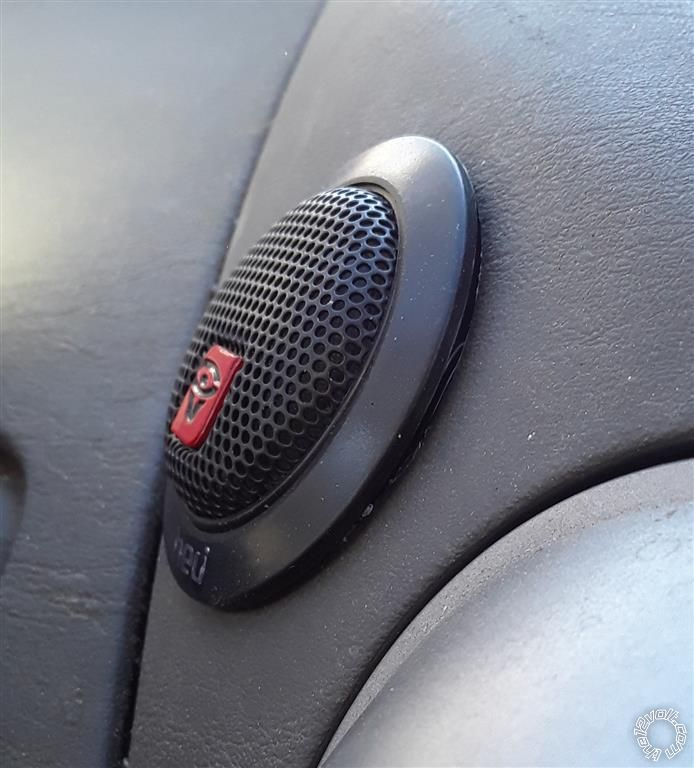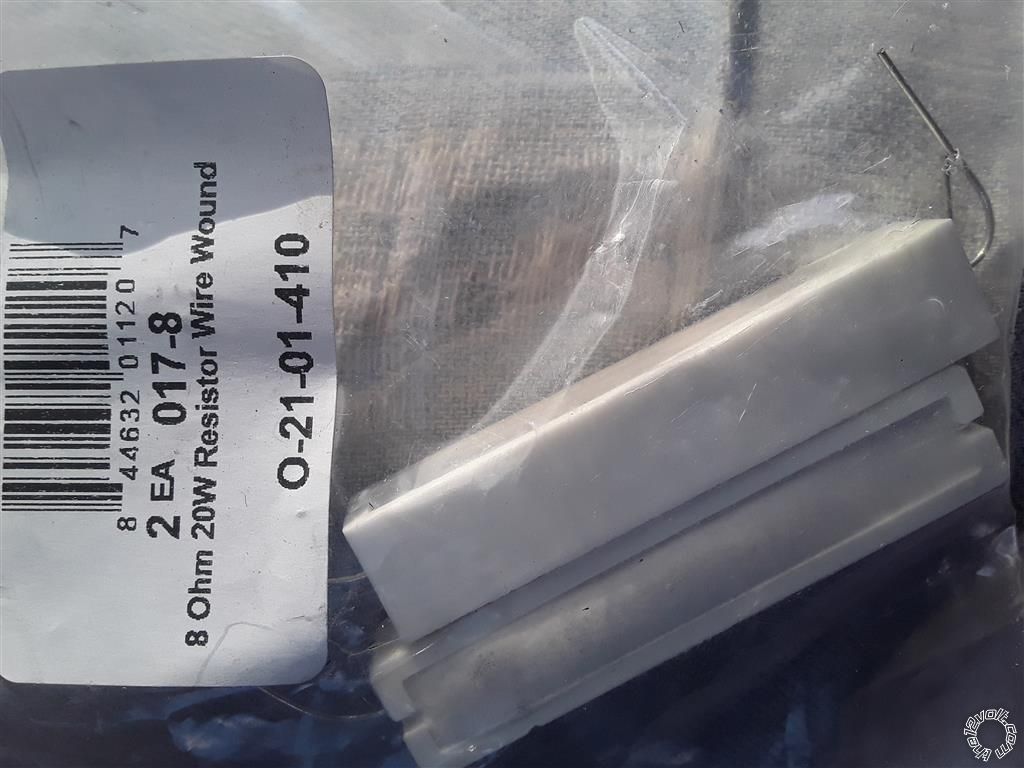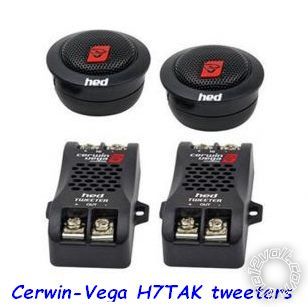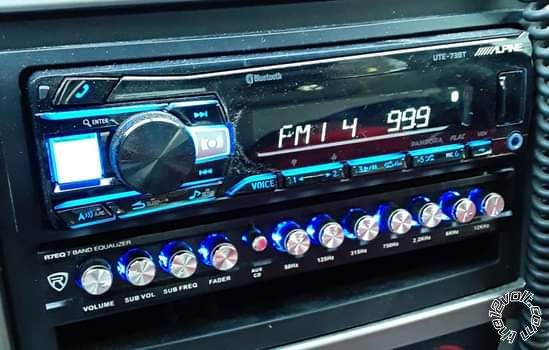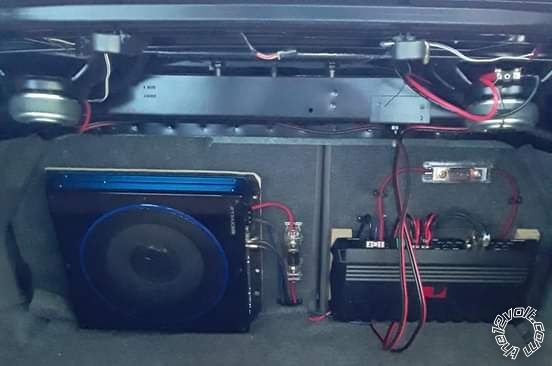After years of running tweeters in parallel with front speakers off my amps, I've never ran into any issues until recently. Not sure why. I'm guessing my newest amp has a more true RMS rating than past ones, thereby sending far too much power to the tweeters. Let me explain what's happening, then I'll get on to the reason for this post.
I purchased a pair of Alpine DDT-S30 tweeters with crossovers. To begin with, right out of the box, there was NO SOUND from the tweeters with the crossovers installed inline with the positive wires. When I removed the crossovers and ran the tweeters directly off the inputs, I got sound. That told me the crossovers were junk. Anyway, I then used a pair of 5,000kHz bass blockers inline with the tweeters, which worked well... for ONE DAY! Apparently I sent way too much power to the tweeters and fried them in one day! My 4 channel Nakamichi amp is rated at 75 wpc RMS at 4-ohms and 150 wpc RMS at 2 ohms, so it's obvious the tweeters got far too much power. Funny, I've run both Pioneer and Kenwood tweeters in parallel with front speakers off 4-channel amps in the past and never had a problem!
SO... next, I purchased a pair of Cerwin-Vega H7TAK tweeters rated at a much higher power handling than the Alpines. They come with really nice crossovers that are clearly marked with input and output sides. Problem is, it says in the owners manual that if you are running these tweeters off a high power amp of 75-150 wpc or more, you MUST use an 8-ohm 20-watt resistor! Well, I ordered a pair but am still waiting on them. In the mean time, I wanted to see how things worked running the tweeters in parallel with my front Pioneer 4-way door speakers. They sound AWESOME! Crystal clear highs! The difference in the car is night and day... for about 5-10 minutes at increased volumes, then I lose my highs! If I turn down the stereo or just turn it off, the highs come back like nothing happened.
One question here is are the crossovers that came with the tweeters shutting down when they get too much power, or is that the front channel of my amp? It's weird that the highs come back after a few minutes of cool-down time.
I've messed with car audio since back in the 70's when I was running the top-of-the-line Pioneer SuperTuner II deck into a Spark-O-Matic booster-equalizer into Kraco 6x9's baby! Oh yeah... memories! Then when I saved up some money from my dishwashing job, I moved up the a pair of Jensen triaxial 6x9's! LOL! Now, at 62 years old, I'm having to deal with and understand resistors in car audio for the first time ever! I'm just not understanding this stuff. If I lose ANY of the highs from my tweeters, I'm tempted to either buy a small 2-channel amp to drive them OR simply run them off my Alpine head unit. Guess I won't know until I get the resistors later this week.
Maybe at 62 years old a person tends to lose his or her understanding of car audio basics, but it also could be too much Corona every night or too many hours working which is affecting my brain cells and causing me to not understand tweeters and wiring them, but as I mentioned earlier, I've never had ANY issues with tweeters shutting down or frying when I ran them in parallel with my front speakers off a 4-channel amp UNTIL NOW!
Basically, I'm just wondering what difference the 4-ohm 20-watt resistors are going to make, and if they are going to cut down on the highs I hear.
Thanks for any advice or knowledge.
 Printable version
Printable version















